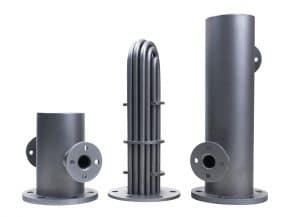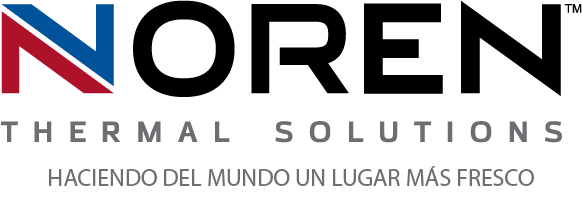 Electrical thermal management is a common need throughout all industries. The more a company relies on technology of various types, the more significant the impact the electrical cooling solutions they utilize will have on their operations. In the most common applications, this need comes in the form of keeping electrical enclosures consistently cooled without having to invest in exorbitant amounts of energy to accomplish it. However, efficient thermal management has several different and unique implications in different industries, and the versatile manner in which heat exchangers transfer waste heat have beneficial to most of them, as well.
Electrical thermal management is a common need throughout all industries. The more a company relies on technology of various types, the more significant the impact the electrical cooling solutions they utilize will have on their operations. In the most common applications, this need comes in the form of keeping electrical enclosures consistently cooled without having to invest in exorbitant amounts of energy to accomplish it. However, efficient thermal management has several different and unique implications in different industries, and the versatile manner in which heat exchangers transfer waste heat have beneficial to most of them, as well.
Enhanced plastic mold cooling with thermal pins
The advantages that come with utilizing more natural methods of transferring heat aren’t limited to cost reduction and streamlined maintenance. These methods are also more effectively customized and utilized for various thermal management needs than older electrical cooling solutions. For example, in the plastic molding industry, the principles of rapidly absorbing and transferring heat can be applied to the core process of cooling superheated molds more reliably and efficiently. In specialized units known as thermal pins, high-performance heat transfer processes are directed at removing large amounts of heat from plastic molds in a near isothermal manner, enhancing the speed and quality of a company’s yields.
Safe and efficient cooling in hazardous locations
In some industries, the need for specialized thermal management units doesn’t stem from a unique use-case of heat transfer principles, but rather special considerations regarding the environment in which the technology is deployed to operate. For instance, in industries such as oil and gas manufacturing, conditions are often hazardous and require all equipment to be manufactured with enhanced levels of protection. Specialized heat exchanger designs can be customized specifically for use in hazardous locations, allowing companies to benefit from safer and more efficient electrical cooling. Because cooling units based on advanced heat transfer principles can operate continuously with little or no maintenance, they also help improve the overall safety of employees by limiting the need to service equipment in the field.
Streamlined green initiatives for most industries
Being able to maintain high-performance thermal management processes consistently and with minimal energy makes modern heat exchangers a more environmentally friendly cooling solution in several ways. They’ve also provided an important catalyst for many companies to implement greener and more eco-friendly techniques and processes into their operations. For example, using specialized heat exchanger technology, many companies can facilitate in-house wastewater treatment processes at reduced costs. Instead of dissipating electrical waste heat, the specialized heat exchangers can redirect to wastewater treatment processes to supply much-needed heat throughout the process.
For more information about specialized heat transfer technologies for different industries, call Noren Thermal Solutions in Taylor, TX, at 866-936-6736.







